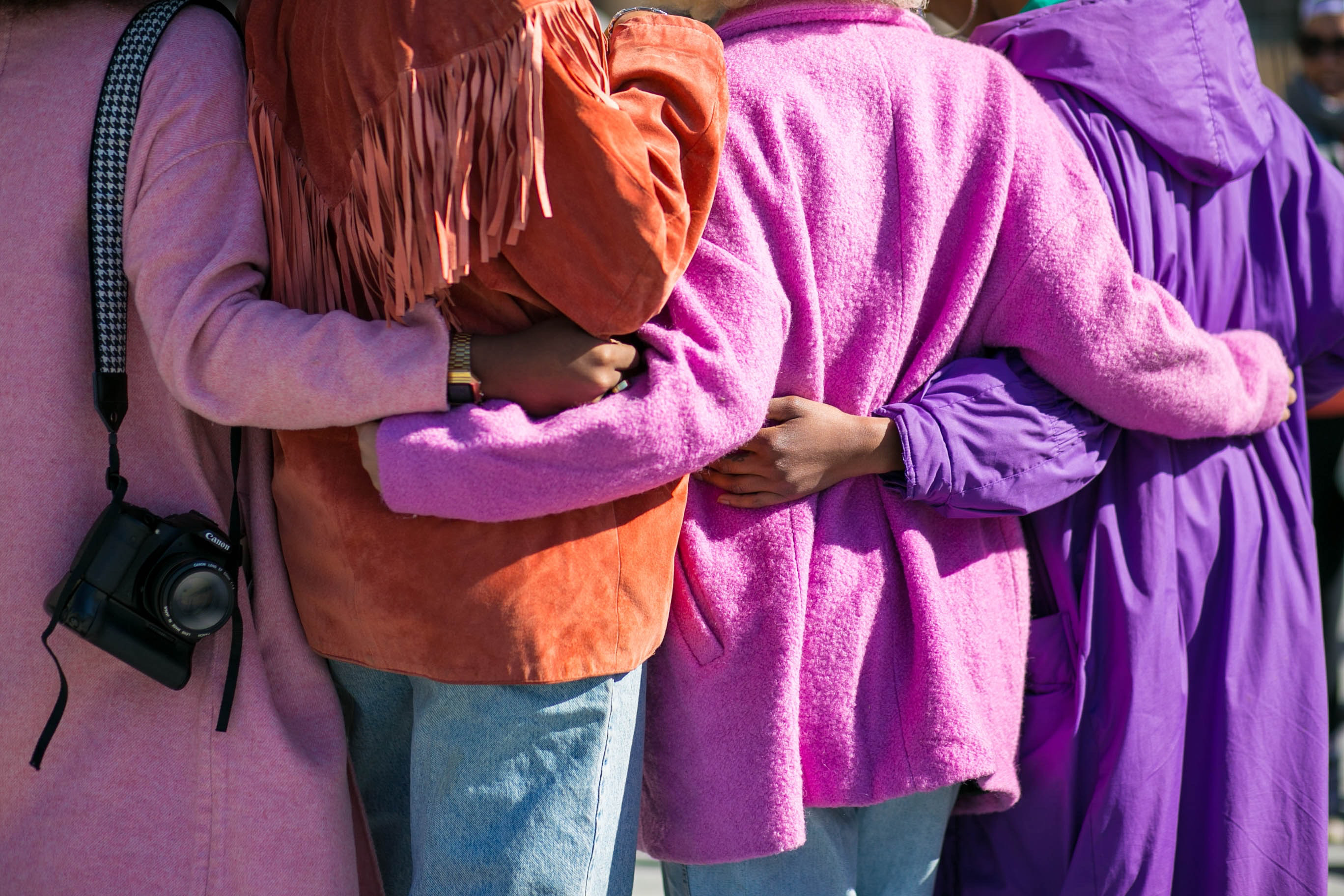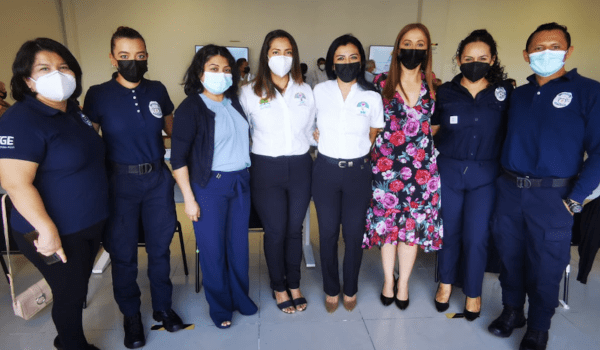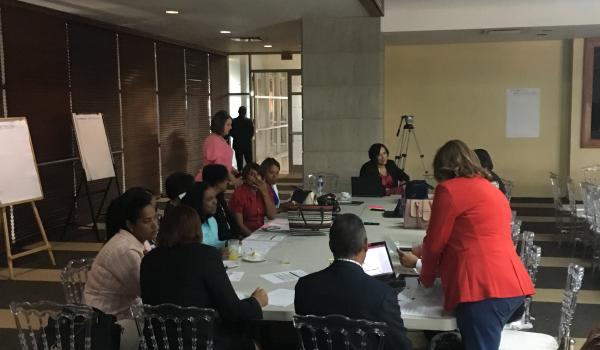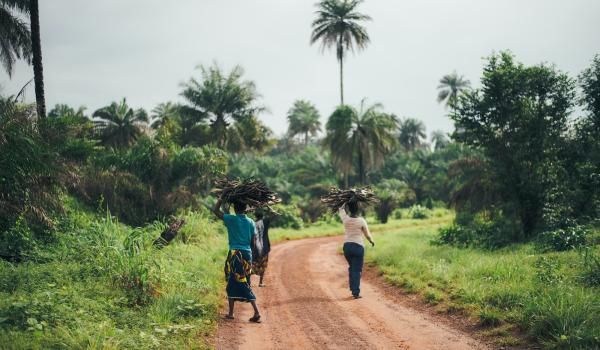
One in three women worldwide experiences physical or sexual violence. RE!NSTITUTE uses 100-Day Challenges to catalyze people-driven, locally-led results and innovation to combat what UN Women calls the ‘shadow pandemic’.
Every day, women and girls are too afraid to walk home at night, to speak up about sexual harassment at work, to report it when they have suffered rape, and to leave a violent home.
At RE!NSTITUTE we believe that now is the time in history that offers an unprecedented opportunity to transform the reality of gender-based violence in the world; and that the only way to do so, regardless of the country or context, is to take a systemic and systematic approach to change.
Through training and the implementation of 100-Day Challenges, RE!NSTITUTE is working in Mexico and South Africa to combat gender-based violence and has previously worked in the Dominican Republic.
In both countries, the numbers are terrifying in their scope and scale. In Mexico, ten women are murdered every day; in South Africa, 50% of all women will experience some form of physical or sexual violence in their lifetime. Impunity levels in both countries cannot be measured because of the absence of reliable data, although it is estimated to be above 90%.
One of the most interesting things about trying to catalyze change in three such different countries is how similar many of the problems they face are. 100-Day Challenge frontline teams made up of judges, police officers, public prosecutors, public defenders, psychologists, women's shelter staff, investigators, and many more have collaborated, innovated, and executed to test effective solutions and achieve unprecedented results.
Gender-based violence is cultural and historical: Violent pasts and presents - such as apartheid in South Africa, the Trujillo dictatorship in the Dominican Republic, and the drug war in Mexico - keep men, women, and girls, locked in cycles of violence. Gender-based violence is rooted in patriarchal cultural beliefs, mindsets, and systems that perpetuate the inequality of women and girls. These roots run so deep that they are difficult to untangle and bring to the light but we must tackle the cause as well as the symptom.
Our 100-Day Challenge teams have:
- Run group masculinity workshops for male defendants for them to break down where their beliefs come from, change their mindsets, find support in one another on their journeys to change and keep them accountable; as an alternative to incarceration and a way of ending the cycle of violence.
- Offering women psychological support to empower themselves and free themselves from the mindsets and beliefs that keep them locked in the cycle of violence.
- Offered training to judges on how to rule with a gender perspective to examine and reframe underlying sexist mindsets that may threaten judicial neutrality.
Gender-based violence is intersectional: High levels of drug and alcohol abuse, poverty and economic uncertainty, race, and others all intersect with gender-based violence.
Our 100-Day Challenge teams have:
- Supported the creation of specialized Drug Courts and Gender Violence Courts - to ensure that instead of being sent to prison and not being rehabilitated, defendants are channeled to drug and alcohol rehabilitation programs, supported to find employment, and more.
- Supported women to gain economic independence from their violent partners, as well as supported the pursuit of child maintenance.
- Increased access to trauma services for underprivileged groups.
Gender-based violence is about men as much as it is about women: In order to end violence against women and girls, we must support men to step out of patriarchal roles and beliefs. Marginalization and militarization of men in the cultures we work in keep them locked in endemic violent structures.
Our 100-Day Challenge teams have:
- Helped achieve a 0% recidivism rate during the 100-Day Challenge for the male defendants under supervision for domestic violence offenses, helping them to end the cycle of violence.
- Offered masculinity workshops in schools, universities, and rural communities to educate young boys.
(But) Gender-based violence needs to be about the victims: Ultimately, gender-based violence services need to place the victims’ needs and wants at the center of the criminal justice process.
Our 100-Day Challenge teams have:
- Created new 911 software and protocols that can detect whether a woman is at risk of losing her life when she calls and prioritizes her when dispatching a police unit, thereby reducing response time for high-risk victims by 90% in one city.
- Trained policemen and women on how to interact with victims and support them to feel safe and believed.
- Dramatically increased the types of services, their quality, and their quantity that women receive when coming forward as victims of gender-based violence.
Gender-based violence is rooted in impunity and a lack of trust in justice systems: Victims across the world lack access to services, and beyond that live with the fear and shame of not being believed. Those brave enough to come forward and report the crime or press charges are often unlikely to get any resolution or support from the justice system.
Our 100-Day Challenge teams have:
- Radically increased the number of gender-based violence cases resolved - every case represents a victim receiving justice, or a family finally getting the closure they need.
- Reduced the average number of hearings held per case dramatically thereby reducing re-victimization and improving victims’ experience. In one city from 6 to 2 hearings.
- In one city, the average time to close a case from the moment charges are pressed to resolution by 50%, from 90 to 45 days.
- established new specialized units in response to the problem of the lack of oversight and enforcement of protection measures for victims
- Increased crime reporting by victims by 300%
Gender-based violence is everyone’s responsibility to solve: Since the barriers to gender equality are systemic, the solutions must be too. This means bringing together every actor in the justice system to work towards a common goal. This includes ‘traditional’ actors such as the Courts, Attorney General’s Office, Public Defenders, Pre-Trial Services, Police, and more. It also includes women’s shelters, academia, health actors, and other civil society organizations. Governments across the world are struggling to tackle this multi-dimensional and deep-rooted problem; they cannot tackle it alone.
Our 100-Day Challenge teams have:
- Collaborated across criminal justice system institutions, universities, NGOs, education and health systems to improve referral processes for victims and improve victim support services such as psychological services
- Worked with churches, hotels, and others to become temporary shelters for women and children escaping violent homes
- Worked with the private sector to institute zero-tolerance policies for Gender-Based Violence and Harassment
In a world in which data is used as a tool for punishment and figures spell nothing but bad news, 100-Day Challenges offer up hope that change is possible. The frontline teams we are supporting have consistently managed, with existing resources to significantly move the needle on indicators crucial in the fight against Gender-Based Violence. These efforts are not just about the results achieved in 100-Days but the innovations that continue to this day.
100-Day Challenges are not about having one plan and sticking to it no matter what, they are about making adjustments as we learn, iteratively overcoming obstacles until we find solutions that work. RE!NSTITUTE is committed to continuing to try, fail, learn, and achieve for women and girls across the world and into the future.

- Gender
- Justice

- Justice
- Training

- Health
- Training